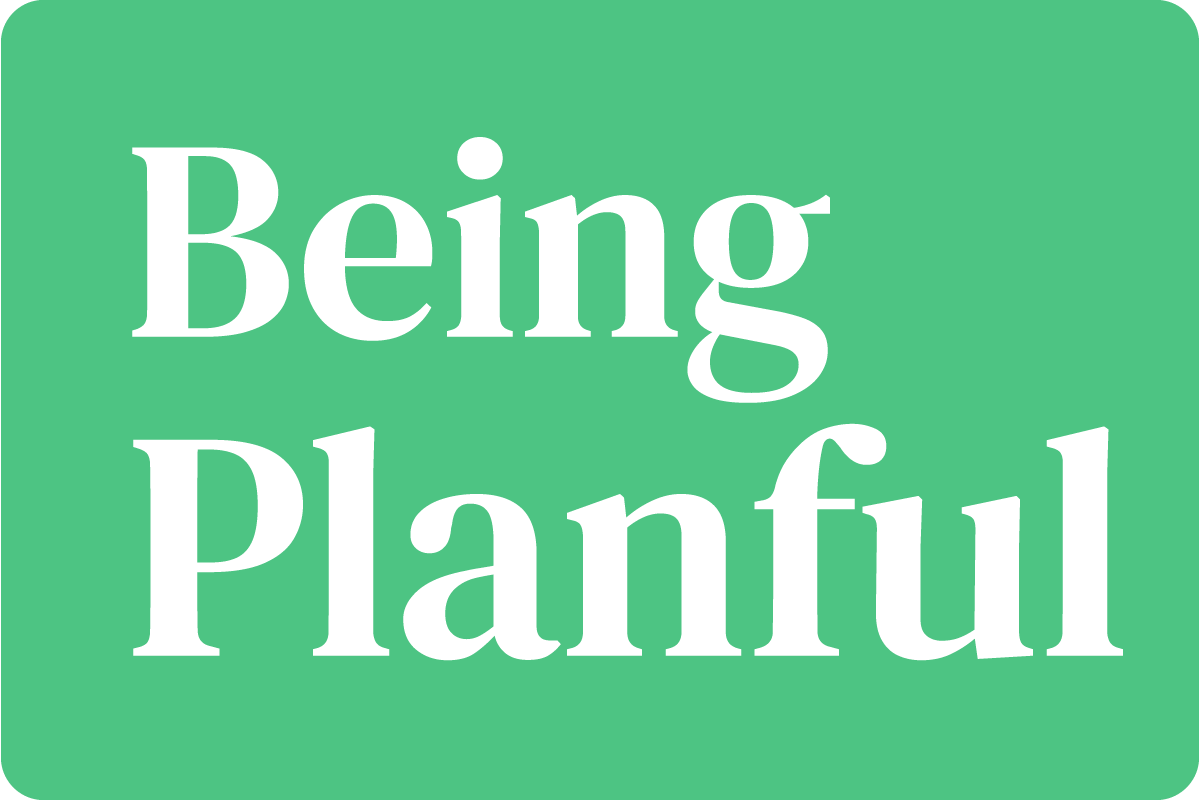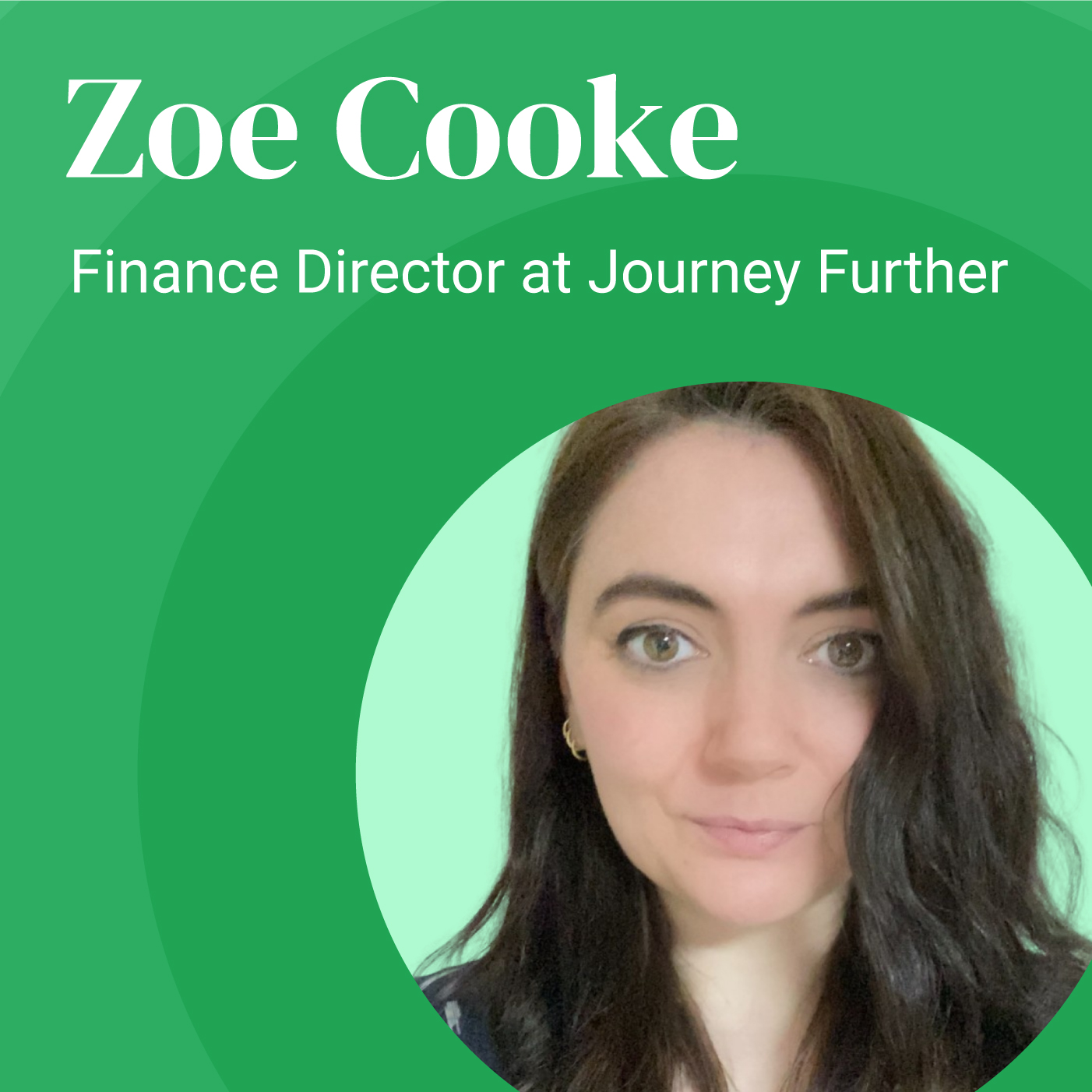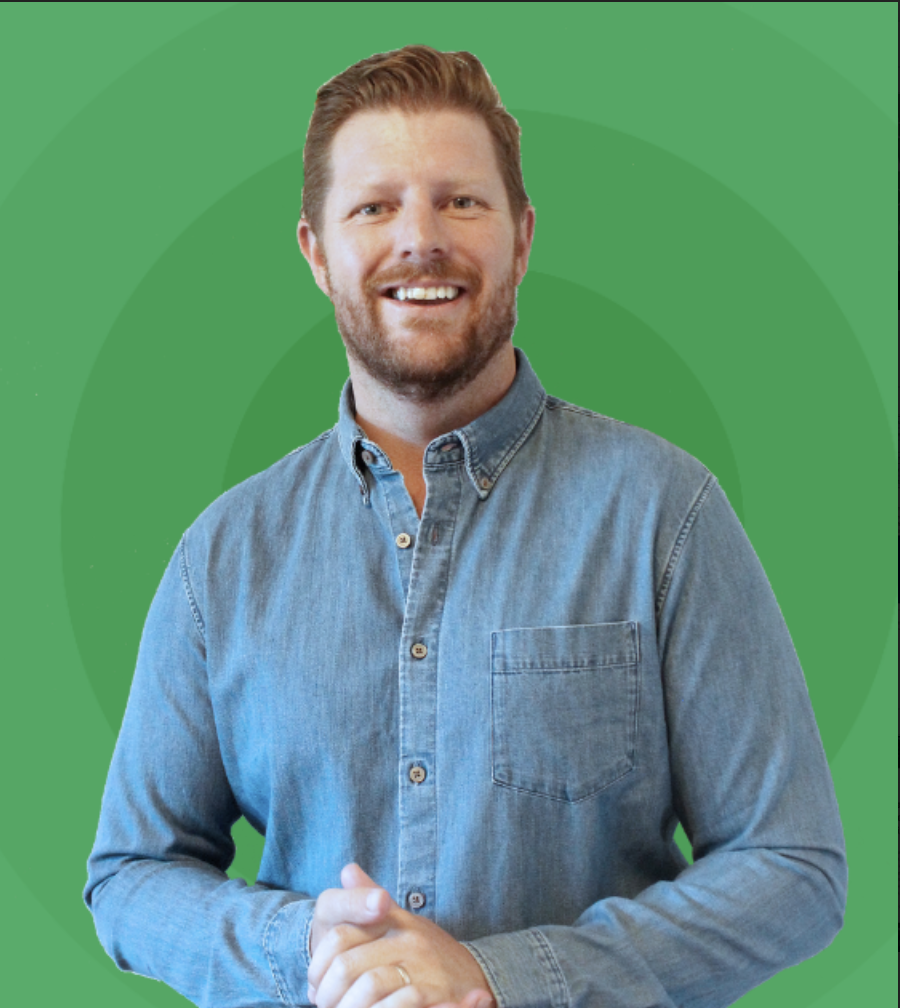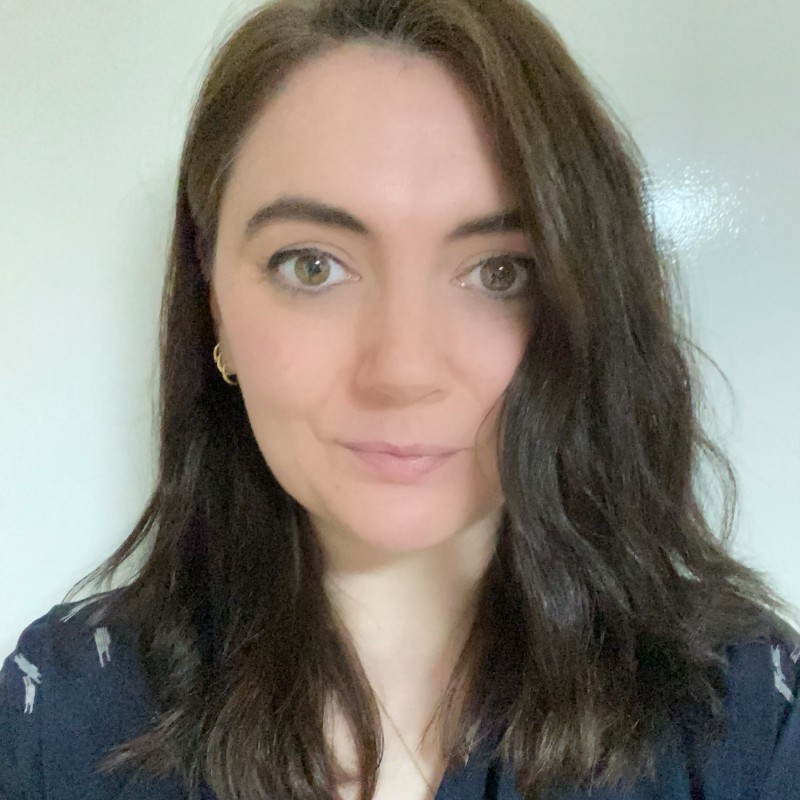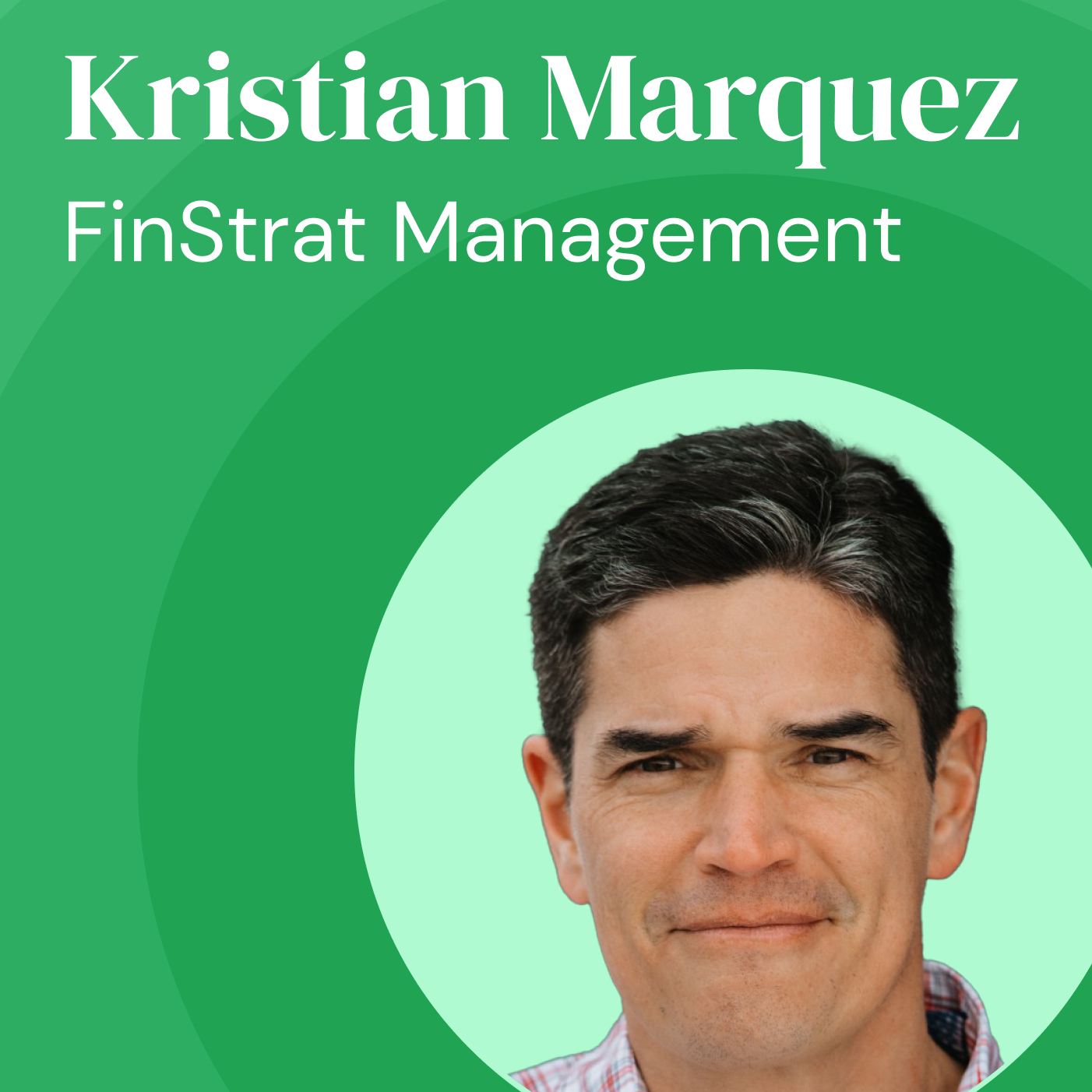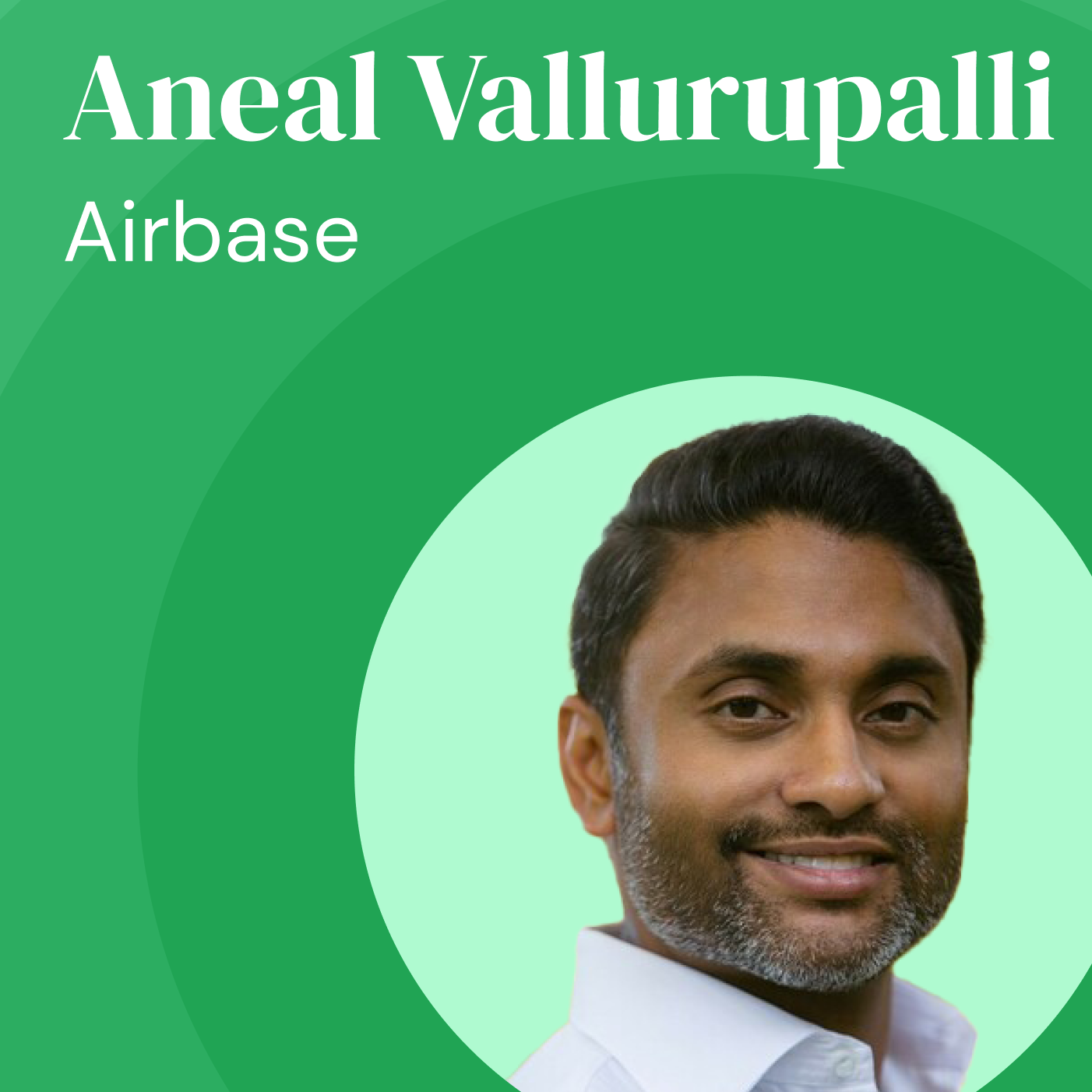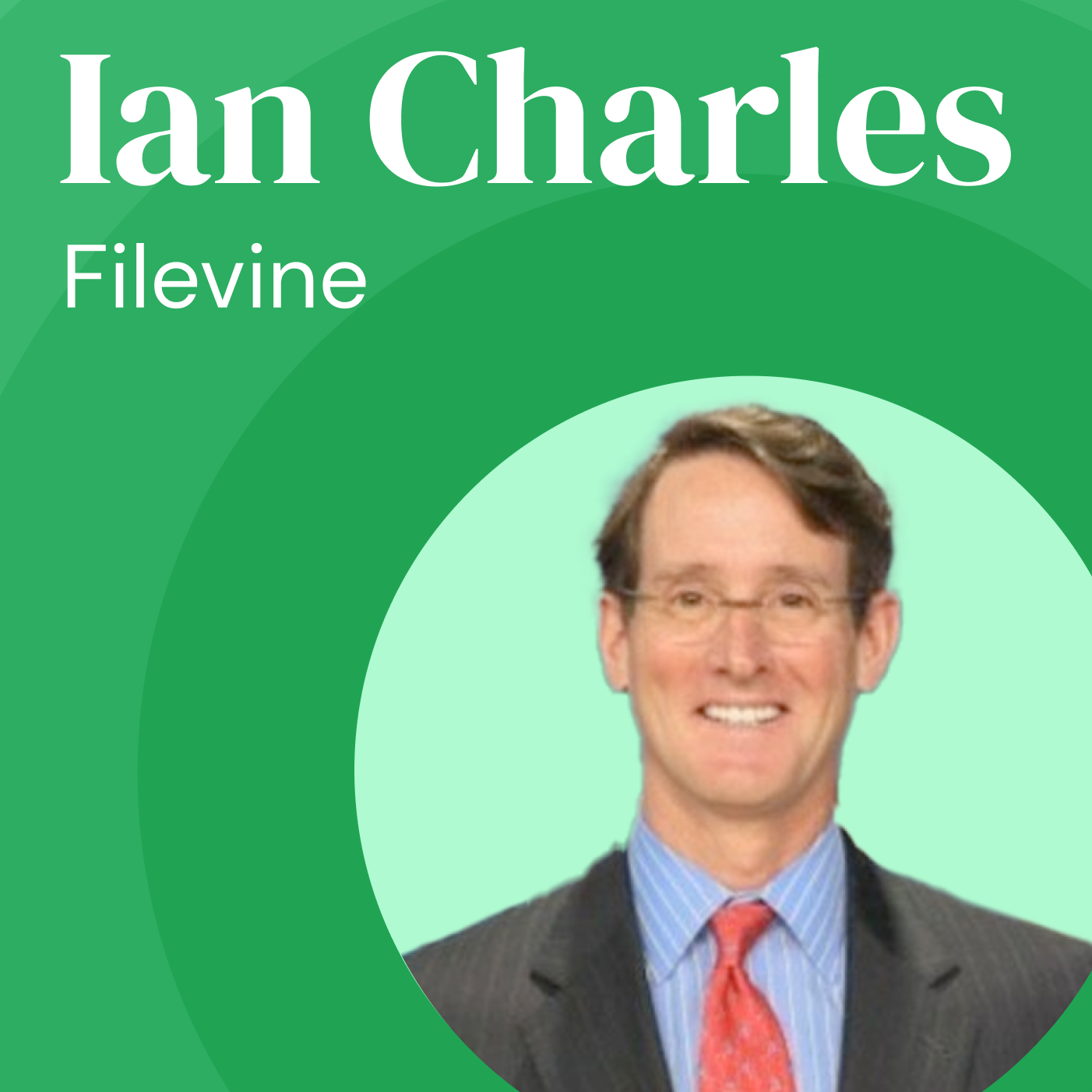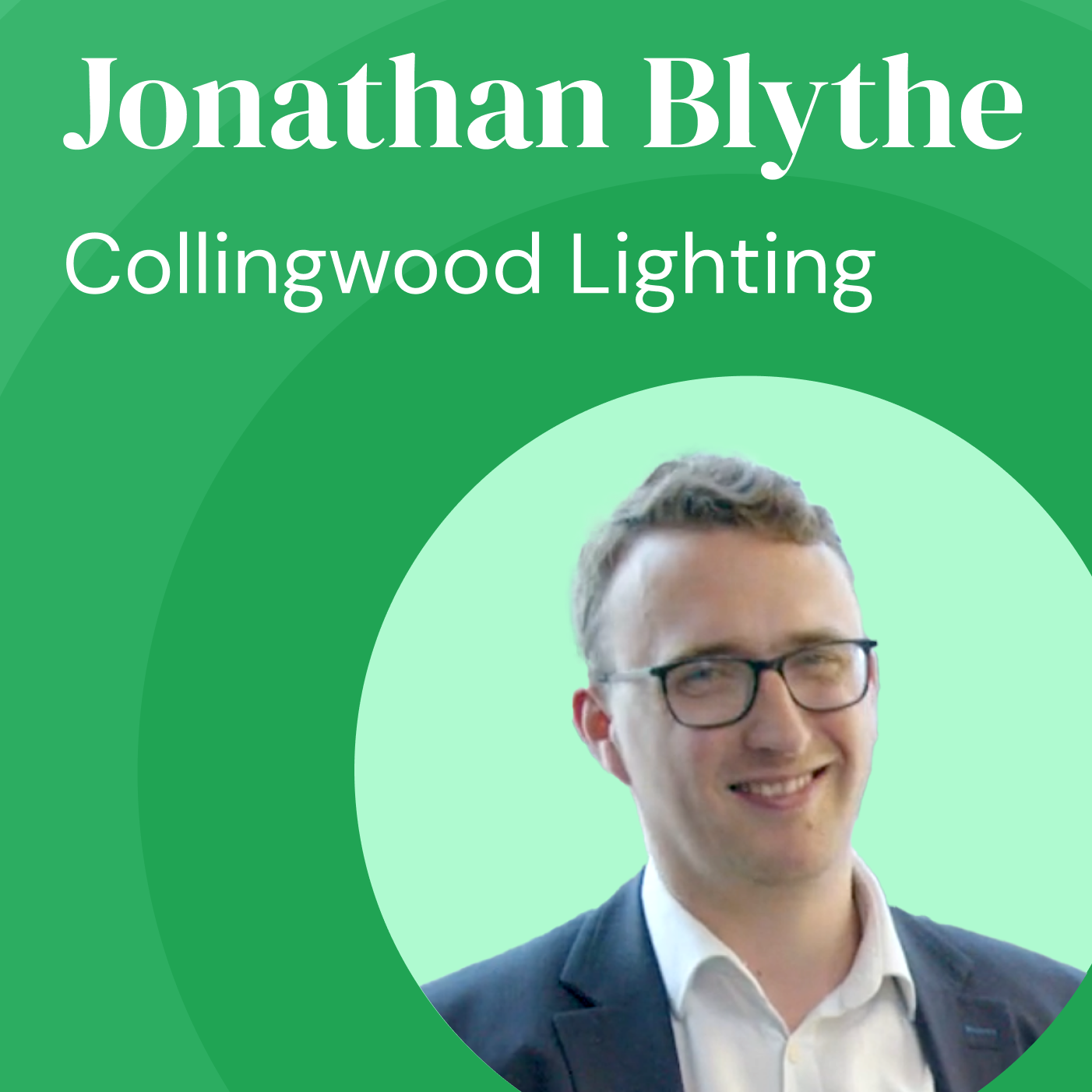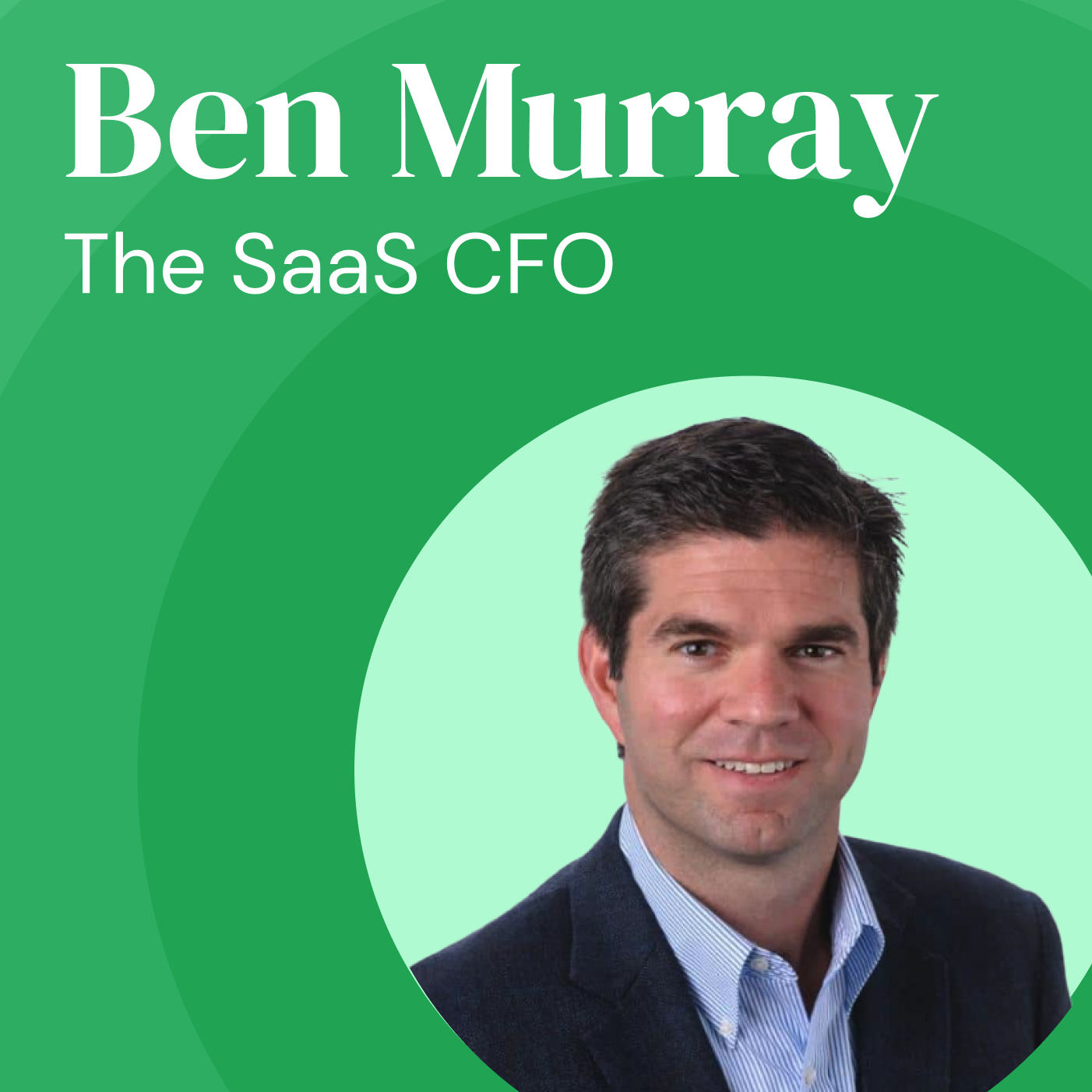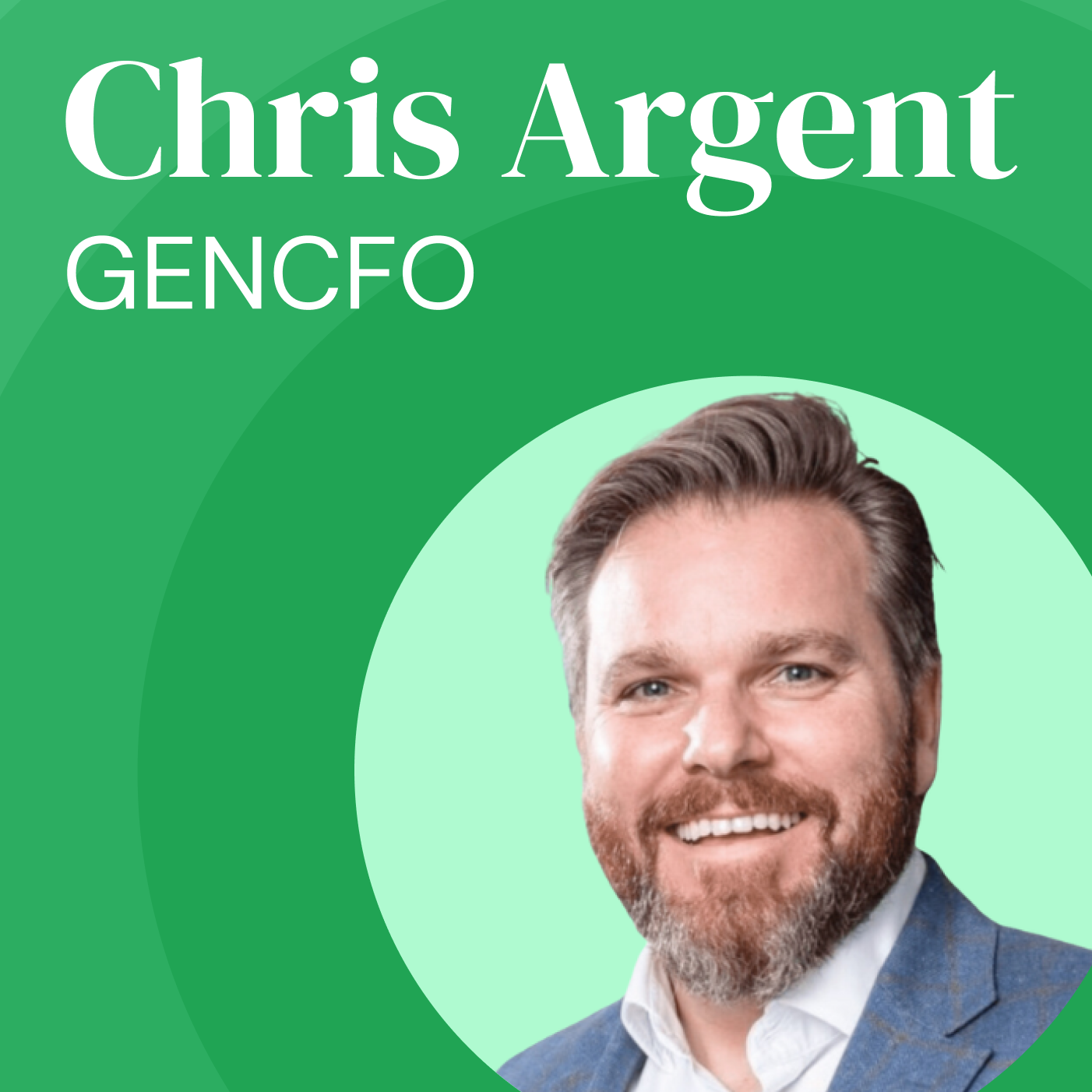Mental Health in FP&A | Zoe Cooke
- 0.5
- 1
- 1.25
- 1.5
- 1.75
- 2
Rowan Tonkin: Hi, I'm your host, Rowan Tonkin. And welcome to Being Planful, the show for FB& A leaders and planning experts. Welcome everyone. I'm the host of Being Planful, Rowan Tonkin, the chief marketing officer here at Planful and today I'm really pleased to be joined by Zoe Cooke, the commercial finance director at MIQ. Welcome, Zoe.
Zoe Cooke: Thank you for having me.
Rowan Tonkin: I'm really excited. We had a little prep call yesterday to talk about this, and we covered some really fun ground for FP& A. And a couple of things that stood out to me about our conversation that you wanted to talk about today was, firstly, soft skills in FP& A and how we can leverage soft skills to become a better FP& A partner to the business. And then we can get into some fun topics, because I know you've worked in the advertising industry for a long time, and I've got some hot seat questions for you about how finance should think about measuring advertising. Given my role in marketing, I always find it a very interesting topic of conversation, so firstly, let's talk about the soft skills. What do you see as some of the missing soft skills when you're talking to other FP& A folks, and how do you think we can improve them?
Zoe Cooke: I really think that when we're training people in FP&A and in accounting, more broadly, we really miss a trick by not also including things like how to give presentations, how to go out and pitch, how to do all of that more sort of showy, extroverted stuff that typically is not included in the accounting curriculum. And one of the things that I've really found in my career is the things that make people want to work with you, that make you be able to be embedded within a business and actually help make those strategic partnerships with business leads, is really actually being able to have a conversation, being able to turn off and have people warm to you and all of the things that if you did that what does an accountant look like piece, they wouldn't be part of that at all. Now, I think that's a really unfair label that gets banded at us all, but I really think that it's a cliche for a reason, because we really need to work at it. And I always think when there's those stereotypes, especially about professions, that's an invitation to learn how to go outside that, because people are so surprised when you turn off and you're bubbly and want to know about them, and remember their wife's name, or husband's name, and that sort of thing. That really feel to those of us who've been brought up to find the correct answer and come with cold, hard logic, as oh, well, that's for someone else to do that kind of thing, and we'll just come with the numbers. And yeah, certainly in my career I've found that people will listen a lot more to the numbers piece if you can also do the personality piece, as well.
Rowan Tonkin: And is that just your natural personality to be a bit more bubbly and be a bit more curious, or did you have to work-
Zoe Cooke: No, not at all. Absolutely not. I wish I could say yes, but I have to say it's a bit of a joke amongst my friends that I'm secretly a bit of a hermit, and no one was worried about how I survived in lockdown, I can tell you, because crosstalk being able to leave my house and just stuck inside watching telly and reading books, that's my dream scenario, so it's certainly something that I've had to learn. It's certainly something that I've had to develop. I don't subscribe to anything that says there's anything that people can't learn. I think you can learn absolutely anything. And if you put some thought into it and some action behind it, I'm a massive proponent of do it until you've become it. And yeah, so crosstalk answer to your question crosstalk
Rowan Tonkin: I think yeah. No, that's great. I think the important thing that I'm hearing from you is you have that self awareness that it's a skill that you need to develop. And I think in my career when I've met lots of people, the people who understand, am I this or am I that? It's not that they don't believe that they can't learn it, it's that they have the awareness that they have to over index at something, it doesn't come naturally, and so therefore, they have to spend a little bit more time on it, or prepare more, for example, maybe a presentation, right? Some folks just feel free to jump on stage and tap dance their way through a presentation, because they've actually got that talent and that skill, and it comes really naturally, whereas a lot of folk, obviously it doesn't. When you think about times in your career where you've had to maybe give a big presentation, is there any specific moments where you've really leaned into over indexing to learning something beforehand, and how did that go?
Zoe Cooke: Yeah, absolutely. My idea of hell is being put on the spot about anything. I can just tell you straight up, inaudible, I hate it so much. And the first time that I did a big conference, and it was we want you to speak for 20 minutes. And I'd literally written it word for word and learned it like I was learning a film script or something. And I could probably still do part of that presentation for you now, because I knew that if there was a sentence where I was going to say, maybe instead of definitely, then I've just completely throw myself. And then when we got to the end of this, and then it's okay, now we're going to open it up for questions. And no one told me anything about questions at all. I just felt all of the blood rush out of my head and leave my body. I was stood on the podium inaudible oh my Gosh, I'm going to faint. But of course it was fine, because a lot of that stuff is... It's just... Well, I say it's just anxiety, anxiety is very real, but there's something that my dad says that I always cling to, which is that the harder I work, the luckier I get. And I think that's one of those things, is anytime anything looks easy, it's usually because someone is so over- prepared, or has spent their whole career working on learning it. And I think that's one of the things I really try and hammer home with our junior members of staff, is it's not that you can't do something, or it's not that it's easier for somebody else. It's just they're 10 years further down their career than you, so they've had 10 years of doing it, failing, learning how to get back up again, redoing it, understanding what it is we've been talking about. And yeah, so that's crosstalk
Rowan Tonkin: And a lot of times, the more seasoned you get in a specific space, whether that's B2B SaaS for me or advertising for you, you have much better pattern recognition, and so therefore, you can spot the patterns earlier. And people are like, " How did this person see that?" And it's like, " Well, they've seen it about 15 times now, so if they didn't understand, you'd be concerned." Right?
Zoe Cooke: I really think that as you... Something I've certainly noticed the last couple of years is there's, especially in FP&A, there's a couple of things that people always go back to, and that if you don't come from a private equity background or that sort of management consultancy background, will completely throw you, but also make you sound really smart if you just go in and start talking about them. So yeah, a lot of it is very much learned behavior, but yeah, there's also a lot of hard work as well.
Rowan Tonkin: You talked about the lockdown, I know you're in London, and you've been through, I think a lot of different lockdowns, with a lot of different-
Zoe Cooke: Yeah, I think it was three. I mean, it might have been four. It was like three and a half.
Rowan Tonkin: Yeah, and a lot of changing expectations from the government, from what I've read. I've got a lot of friends back there, I lived there for a while. Can you talk to me about how that has impacted the mental health of FP& A folks and your peers and your team? I know that certainly people that I've spoken to, the intensity of FP&A just became monumental in March timeframe, and it hasn't stopped. What's been your perception?
Zoe Cooke: Yeah, so mental health is something I'm super passionate about. I'm a mental health first aider, and one of the things I'm really proud about, I'm like you, is that I've been part of a team that's really good at pushing mental health and mental health awareness as part of the inaudible wellbeing program. And so we're just about to train, I think it's like 20 mental health first aiders in the UK. The three weeks after we first went into lockdown, where essentially, it was like, " Okay, the world might be ending. What do we do for the business? What do we do for the staff?" I will say, and hopefully I'll say this for the rest of my life, but I think that's probably the most stressful month I've ever worked. We basically didn't stop working for a month, and that was me and six, seven other people. It was intense, and I've always been very aware about recommendations that I make, or analysis that I put forward has the human impact, but I don't think I'd ever have felt it as much as when we were then looking at 700 people's salary, mortgage payments, kid's school fees, all of that very real stuff that you disassociate a bit from when you're just looking at them as a part of a spreadsheet. And one of the things, I mean, I'll be forever grateful to MIQ for is, we took really, really swift action in terms of making sure that it was communicated to our staff that no one was going to get fired and we had secure jobs for a set amount of time before it was even thought about. And really, I think what they did really well, from a mental health perspective, in terms of the broader business, was really giving people that assurance that they were going to be able to make their bill payments, frankly. And from a FP& A standpoint, obviously, it put so much focus on to what we did, whereas probably the first year at MIQ we'd been able to be building consistently, slowly, thoughtfully around what we were doing, it was suddenly like, " There's no time for that. We just need everything to be fixed now, everything to be changed now." And All of that stuff. Remodel the whole project you've just spent six months working on. All of that sort of thing, which it really, for me personally, put me in a bit of a odd mindset. I think crosstalk saying that, because while all this madness is going on outside, I didn't really have a chance to think about what is going on with COVID, and how scared should I be? Or whatever, I was just like, " Okay, I've got a computer. I've got some screens, we're doing work." So I think well, I think certainly for me what happened was the processing piece that a lot of people had done at the beginning where they were really scared, they were really frightened, was quite delayed. I think I probably went through that in the summer of last year, which I don't know whether that's a sort of good mental health thing or a poor mental health thing. But certainly it was a lot, and I think I ended up in a bit of an odd housing situation, where despite being well into my 30s, there was a series of unfortunate events, and very fortunately, my parents just said, " Come and stay with us." It was very visible to them how strung out I was, and stressed out I was, because obviously your parents are used to seeing you when you're happy, smiley, it's someone's birthday, it's Christmas, it's... And suddenly it was, oh, God inaudible bags under your eyes inaudible really worried about what was happening with the rest of the business. So long answer to a short question, but yeah, I think it really did take a toll. And I think what the lasting impact of that will be is that a lot of people, I think now that hopefully, we're past the worst of it, they're really taking a long, hard look about what does work mean to me, and what does it mean within my life? And is it appropriate that three to six months of the year while we're doing the budget you're working evenings and weekends, and you go through a quarterly cycle where you don't have time to have a social life. crosstalk time, and I really hope that what can come from this is that people start to have a more realistic work/ life relationship, and I think you're certainly seeing that in a lot of the conversations that are happening around flexitime, and whether people are going to go back to working in offices, or whether they're going to continue to work from home. You said you lived in London for a bit, so I shaved two hours off of my day because I didn't have to commute anymore, which was wonderful, but I didn't speak to anyone for a year in face to face, which was horrible. So, yeah, it's definitely a balance, I think, at the moment.
Rowan Tonkin: My friends got really upset at me for my time in London, because I used to walk... I lived in Chiswick, and I worked in Hammersmith, so I just walked down the high street every day, sipping on a coffee, so I can't empathize. I should be able to. And now I'm being punished, because it's a one and a half hour drive to the office.
Zoe Cooke: crosstalk
Rowan Tonkin: I'm being punished for my glory days in London. When you think about... Obviously, that's the pressure that you as the FP& A team and the analysts really feel, that kind of... We talk about FP& A being very cyclical and having very high spikes of intensity, and I think what I'm hearing from business leaders is now they've course corrected their expectations, right? What used to be a monthly requirement is now weekly, and what was weekly is now daily. And that is disconnected, really, from the burnout and the feelings of those people in those teams. Have you seen in your networks a way or people turning towards how to solve for that? How to solve for burnout of younger professionals, how to solve for that mental health challenge that you talked about?
Zoe Cooke: Yeah. I mean, it's tough. It is really tough. I am quite a proponent of just because it was rubbish when I was a grad, that doesn't mean that it should be rubbish for the graduate coming through now. You should make it better every cycle. But I mean, one of the things that COVID really did for our team was make us think about the way that we were producing things, and actually I probably shouldn't say this, but we came up with some really creative solutions for things that previously we thought we couldn't do, because we'd never thought about, as you said, doing the weekly reports daily, or how we inaudible, or is there a way that we could make things more agile, more bespoke? Because if we were being asked for it more often, you can't rely so much on manual processes, you have to rely on a tech solution. And so for us, the technological innovation side of it went like a inaudible. But what comes with that is all of the focus from the business, which was inaudible lovely, and like it was a growing company, so what always come with that is a lot of investment, which is wonderful for what we're doing right now, because it's a whole different world in terms of resource, in terms of systems, everything, than when I joined two and a half years ago, because... And part of that is because we really demonstrated the value of our team within that time, and over the last year. Yeah, I'd be heartbroken if anyone had said we hadn't earned all that, by the way. crosstalk
Rowan Tonkin: Yeah.
Zoe Cooke: But, crosstalk
Rowan Tonkin: I mean, just quickly stop. Shout out to all the FP& A teams for last year. Every single FP& A team I know went through a... We at Planful called it the ambush, then the triage and then the recovery. And for a lot of folks, the ambush lasted for a really long period of time, depending on your business, so shout out to everyone in FP& A listening. Last year was super tough, and I know that intensity hasn't really gone away, so keep doing what you're doing and keep asking for the resources, it would be my advice.
Zoe Cooke: Yeah. In terms of dealing with the burnout for the younger staff, I really, genuinely believe that having a good understanding around issues around mental health and around mental wellbeing is crucial for management teams. We know that one or more people within a year will have mental health concerns, or mental wellbeing problems. And yeah, this is the first place I've ever worked where you as a manager are trained in how to deal with that. And if it's a quarter of your staff, that's too many people to not be putting money behind, or not be thinking about. And certainly some of the things that people have accidentally said to me in my career around mental health has just been absolutely wild, and I really think that we're getting to a point where people have started to have the awareness of what is it okay to say, what is it absolutely not okay to say, and what is my responsibility as a manager to the people who I have a duty of care for? And they're pastoral care is also part pf my job. And I know that a lot of people don't take that approach, and think, "Well, their career progression is part of my job, and their job performance is part of my job, and that's it." Now, that might be true, that might be what you think. You might think the staffing out your team is the only thing you need to deal with. There are steps around, that if people have good managers who they respond to, they will have to take a 30% pay rise to consider going somewhere else. And getting the two day training on how to actively listen to your staff is a hell of a lot cheaper than giving them those pay raises, or having to look elsewhere for staff all the time, because we know that recruiting in costs way more than developing staff.
Rowan Tonkin: Absolutely.
Zoe Cooke: So I think my point is if you can't feel on an emotional level, you don't want a crosstalk level.
Rowan Tonkin: Yeah. And the other thing I would say is when you're saying a quarter of your staff will go through mental health challenges in a 12 month period, I imagine that that... I don't know the data, and I probably should, but I would guess that that's probably even higher at management levels, right? And therefore, you've got very stressed out managers who are struggling to deal with their own things, trying to manage stressed out employees and teams, and that's not a good combination at all. I can tell you, if I looked at the number of mental health meditations on my Peloton app I did, it was pretty high in Q2 of last year, right? I do do meditations pretty frequently, but I'm sure it was a big spike in Q2 of last year, just trying to clear my mind of everything that was going on. And that's really important as a manager to do for yourself, because you can't help anyone else if you can't help yourself.
Zoe Cooke: 100%.
Rowan Tonkin: Let's turn a little bit to advertising. I imagine a big part of the stress for you during last year was the fact that a lot of budgets were pulled from a lot of organizations, so MIQ, fast growing organization in one of the epicenters of advertising, London, obviously London, New York. What was that like from a business perspective, just seeing probably media budgets being cut left, right and center, and how do you even think about modeling that?
Zoe Cooke: From a business perspective, I think it was terrifying. Even thinking about how our CRM set up was, we didn't have anything to say we've lost... We didn't have the kind of data clickey to say, " Hey, we lost this business due to COVID." It was things like, " Okay, we need to build that." And then we really put a lot of time into rebuilding our sales pipeline reporting, so we were looking at that, basically, once in the morning, once in the afternoon. You'll know as well as I do that the first thing that gets paused as soon as there's any sort of recession, or any sort of contraction in the economy is marketing spend. Anyone who's ever managed a budget will know that the first thing that gets taken... Well, first thing that gets taken away is T&E, and then second thing is marketing. And that's really scary, because then we're looking at, this is our whole business, but we also have these bright spots on the horizon as well of, okay, we do a lot of work around the elections and turned out to be the most expensive advertising election of all time, ever. We basically prepped a lot of different scenarios. I think we had seven working models. Yeah, seven, and those were being updated like twice a day, really. We really had to sit right on top of it and try and work out what that was going to mean for the business. We also just decided, this is what we'll view as an acceptable level of loss, if it comes to that. It didn't. Actually, what we found was.... What we do, essentially, is buy ad space online for advertisers for advertising agencies. And what we found was that inventory became quite cheap, but actually really effective, because suddenly everyone was at home. Suddenly, your conversions start looking really good, and there was a month where it was, yes, really scary. And then we started to see things pick up. For us, a lot of the things that we looked at where we started drilling down much further into things like what categories they're turning off and turning on, so it won't be a surprise to anyone, but advertising and travel, really, really` crosstalk. Things like that, that are super high top level, but actually, we don't really think about a business like that. We think about it with a very different lens. What it did in terms of our reporting, is actually now it's going to be so much more rich, because we were forced to think about all these things that previously we were on a fence about how much of a role they played inaudible. Whereas now, it means that all of the models inaudible much more detailed, I suppose.
Rowan Tonkin: Yeah, much more complexity. I know we had to go through that ourselves. I say that my product marketing team became a group of research analysts for about a month to try and assess who would thrive, who would survive, and who would unfortunately, not make it. Because that was the reality of what was happening, and so that's a complete new dimension into all of your models, right? Like industry, or vertical, or however you wanted to classify it. And so now you're getting that level of granularity, and you've given something, to your point earlier, around you proved the value of FP& A to the business. Now the business is like, " Wow, we've got vertical level information. We've never had that before." So that accelerant really, really occurred within your business, which is really interesting, but you're doing it under a really high pressure forcing function environment.
Zoe Cooke: I also really want to say that those sales teams, and you were incredible. It was the day after we went into... We got sent home, I think it was a week before we actually went into national lockdown, and I think it was the day after we got sent home, they were already planning... I think they called it make lemonade. It was like what are actually the opportunities that are going to come out of COVID? Let's focus on home fitness, let's focus on leisure wear, let's focus on at home beauty, things like that. From a strategic standpoint, the business leads were phenomenal at saying, " Let's not just get stuck on focusing on what's being lost. Let's start thinking about what we can actually gain out of this, as well."
Rowan Tonkin: Well, yeah, liquor sales probably went up too, I'm sure. I saw something that liquor sales for at home in the US went up by 60%, or something like that, which is quite scary.
Zoe Cooke: Gosh.
Rowan Tonkin: In terms of... Let's stay on the advertising front. What do you believe in terms of, should you measure everything in advertising?
Zoe Cooke: Oh, my gosh. I think you have to start with lots and then drill down, and then a sort of edit, I suppose is the right term, because one of the things that I probably saw more when I worked in e-commerce than when I worked in advertising, is that when people just have all of the data, you end up in that analysis paralysis of I can't actually work out what's the fulcrum that things are actually dependent on? I think that's the right...
Rowan Tonkin: Yeah, it's okay. crosstalk, take of it what they will. Yeah.
Zoe Cooke: Instead, you end up with too many variables. And from a financial modeling standpoint, you end up with something that's useless, because it's almost like not sensitive enough, but also too sensitive to actually do anything right. For me, what you need to do is work out what are your strategic priorities, and then how do you build your models backwards from them? What are the things that really do actually contribute to changes within your business? What I always say to the guys on my team is, " If you think it's interesting, give it a go. See if it's there. If it's not, you've not wasted anything, because you've learnt a new ratio, a new skill, a new way of modeling it. If you put it all in into a model, and it actually doesn't change anything, then all right, you've lost what? Half hour, hour of inaudible work where you probably bolstered your knowledge of how models work, or understanding CPR model.
Rowan Tonkin: Yeah, or you know that that's not a driver of the business, right?
Zoe Cooke: Yeah, crosstalk.
Rowan Tonkin: And you can rule it out for future. I think from my perspective, I think one of the things that when I talk to my FP& A partners is I really try and get them to think about the intent behind what we're doing, right? A campaign is not the same as another campaign, right? And I think that's where my ask of FP& A leads is to come and sit with folks like me, and try and understand the business strategy. Because one campaign at a brand level will lead to no revenue, right? Because it's not intended to do that, generally. But if it's a very DTC e- commerce business, which is like a shop now button, that's absolutely meant to lead to purchase, right? And so you want to optimize that for purchase, whereas the brand level advertising, you want to optimize for different metrics. And so my ask of FP& A folks is to go and figure that out with your business partners, because you can't just take impressions, CPM, and create a ROAS model and look at it as one big model. It just won't work. I don't know if you believe that or not, but that's my philosophy.
Zoe Cooke: Yeah, crosstalk. I mean, I think the best experience that you can get is going and sitting with the people who sell what your business sells, and say, " Hey, how do you sell it in? What are the things that are important? What is it that when you're sat in front of agencies or advertisers that you're saying are the things that set us apart?" Because that's what we should be measuring. Those are the thing that's the differentiators. We used to have this all the time actually, at Groupon, where... And this is going to date me, but it was one of the first places that really played around with when you were sent an email, your campaign might be right at the top, or it'll have different placement on the website. And the planners would always... This would be like the main thing, like where was it placed on page? And not having had a marketing background, I couldn't get into my head that that was the same as like if you're in a supermarket, like what cereal is placed where will determine which one you buy. And so they were doing all this super cool AB testing, which in hindsight should have 100% been part of our models, but we weren't mature enough at the time to be able to be pulling that in. But it's those sorts of things where unless you can understand why is this important to the business, why does the business spend so much time looking at these certain things, you're not going to be as effective of a business partner in your modeling as you would be if you had done that. One of the things that MIQ does that I think is excellent, is whenever we have new joiners, they basically spend the first week sat with all the different teams and learning what they do. And as a hiring manager, it's quite frustrating, because it means that you're crosstalk
Rowan Tonkin: Yeah. I want this person productive. Yeah.
Zoe Cooke: But what it means is that you don't have people who join and are like, " I don't know what programmatic is." Because they've just spent a week learning it, and learning what's important about it, and all that sort of thing.
Rowan Tonkin: Yeah, it's funny in that timeframe, I think the mid 2000s, people forgot that it still was the four P's of marketing and what you were talking about there was place, but everyone just assumed place was email, right? But actually, it was like a little p which is place within email, or place within website, or place within wherever that thing was, and it's actually so important to that promotion, or offer, or product, or whatever the other P is in marketing, I guess price. Rowan, I should know these.
Zoe Cooke: I was going to say, I felt like inaudible you're like year one, there. crosstalk
Rowan Tonkin: Yeah. But it's a good fundamental. If PNA didn't learn the four P's in marketing, right? If you're a business partner to marketing and you don't know what the four P's are, go and find out, right? Because it'll give you maybe a different paradigm than you're thinking about today. Talk to me about what's the next steps for Zoe Cooke, right? What are you trying to develop your skills in right now? Right now you've got a team under you, you're really trying to mature them, you're trying to make the world a... You're trying to leave it better, right? But what are you trying to better in your personal career?
Zoe Cooke: I think what I've done quite well so far is taking teams from having quite an immature data structure to something that's a lot more streamlined. And I think what I've always seen of myself is that that's quite a transitional role. You can do that for two years, and then people want you to do other things, and so now I'm really trying to focus on the other things, and probably taking more of a broad perspective. That's why my role isn't FP&A anymore, it's commercial finance, because we're starting to think about more of the commercial business partnering side and more of the system side, and then how we put all of that under the big inaudible connected, and then how we put all of that under the umbrella of commercial finance. I think yeah, probably broadening-
Rowan Tonkin: Yeah, yeah.
Zoe Cooke: ...and probably doing more accounting than I would naturally want to do, because I think now we're in a stage where people are starting to talk about valuations and what inaudible just might want to see, and that sort of thing, and that more due diligence piece. And yeah, I've been realizing that I'm going to have to learn that by the inaudible
Rowan Tonkin: Yeah. What did you study when you were in college?
Zoe Cooke: I studied government, and then I studied political theory for my masters, so it was about as far from accounting and finance as you could possibly imagine. I had the great pleasure of being one of the lucky people who graduated into the financial crash, so I went from being under the impression that any job that I could ever dream of I could just walk straight into and I'd smile, and everyone would just fall at my feet for how clever I was, and ended up... I think I was working three part time jobs and living with my mom and dad, and just being like, " This is another level." And I did that for, I think three, six months and was just like, " This is unsustainable. I'm tired all the time. I need to get whatever the next job that I interview for. I'm really going to put a lot of effort into the interview. And I'd flunked, I don't know, I must have flunked 20 interviews before that, which is the most demoralizing thing in the world.
Rowan Tonkin: Yeah.
Zoe Cooke: I really feel for people who leave university and then need to find a job, because I worked a part time job since I was 14, but at 22 I still had no relevant experience to do anything. And yeah, it was really demoralizing, and one of my friends had just started work, had started working at Groupon, which was, I think, six months old in the UK when I joined. I basically inaudible... I haven't actually ever told this properly, so crosstalk
Rowan Tonkin: We're ready.
Zoe Cooke: They can't fire me now because they crosstalk, but they rang me up, and it was like... I remember it so vividly, because it was really snowy, and the signal in my house was terrible at the best of times, but even worse in bad weather. And they were like, " Yeah, we'd like you to come in and interview for a job in a team." And I was like, " Yes, absolutely. I will do that." And I went and I had no idea what I was going to interview for, and I still had in my head, it's like, " As long as it's not accounting, finance, but I can just inaudible it. I'll say whatever, I don't mind inaudible." And I went in and they were like, "So this is for a job for an accounting intern." And I was like, " Oh, my God." And I was like, "I don't care. I need a job so badly." And I don't know if they could smell the desperation. Or they also just needed people so badly, I think it was probably the latter, but yeah, I made the best of it. And what I realized was, what you think that your life is going to be when you have to make those decisions at 17 is not what your life is going to be. And if it is, then that's great, and if you know what you want to do, that's excellent. If you don't have a clue what you want to do, or you have a very set idea and that does not transpire for you, it's not the end of the world. And yes, you might have to change your expectations, you might have to make the best out of something that you hadn't envisaged, but you absolutely can do that. And I'm still not entirely sure I want to work in accounting and finance, and I'm quite far deep into it now. But yeah, I don't know. I think you need to leave a bit of space in your life for that sort of uncertainty.
Rowan Tonkin: Well, it sounds like last year, even though it was a very tough year, you got to take that political theory and political understanding in your current role, right? If you understand the politics side of the world and you're in the advertising space, those two things meshing together must have been an interesting time for you.
Zoe Cooke: Yeah, I don't know. I don't know that I really inaudible. I know it would have helped if I studied accounting and finance.
Rowan Tonkin: Great, yeah. Well, it was funny, you said before in the inaudible marketing budget is the first thing to get cut, and you graduated in the GFC. That was when I turned up in London trying to sell marketing software was in the middle of the GFC, trying to sell to companies to sell them marketing budgeting software. They're like-
Zoe Cooke: No.
Rowan Tonkin: To budget what? It was a tough few years initially, but eventually people realized that they could optimize their budgets using our software, so we did okay in the end. But yeah, funny coincidence there. So Zoe, I want to be respectful of your time. Thank you so much for joining us today. I really appreciate it. I really appreciate your insights into advertising, but more importantly, the raw and honest conversation about mental health and mental health in finance. I think that was really important for folks, and I want to thank you for being a guest on Being Planful.
Zoe Cooke: Thank you for having me. I really enjoyed that.
Rowan Tonkin: Yeah, thanks so much. All right, bye.
Zoe Cooke: Yeah, bye.
Rowan Tonkin: Make sure you hit subscribe on Apple podcast, Google Play, Spotify, or wherever you get your podcast so you don't miss an episode. Thanks for stopping by.
DESCRIPTION
There’s no denying that the pandemic opened the door to a new level of empathy in business. Tune into this conversation with Zoe Cooke, Finance Director at Journey Further (formerly Commercial Finance Director at MiQ), and hear how she and her team made mental well-being a priority, learn her tips for handling burnout, and advice for maintaining mental health as a manager. Zoe also shares how FP&A can improve soft skills, and some insight into the worlds of advertising and e-commerce.
